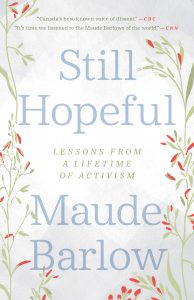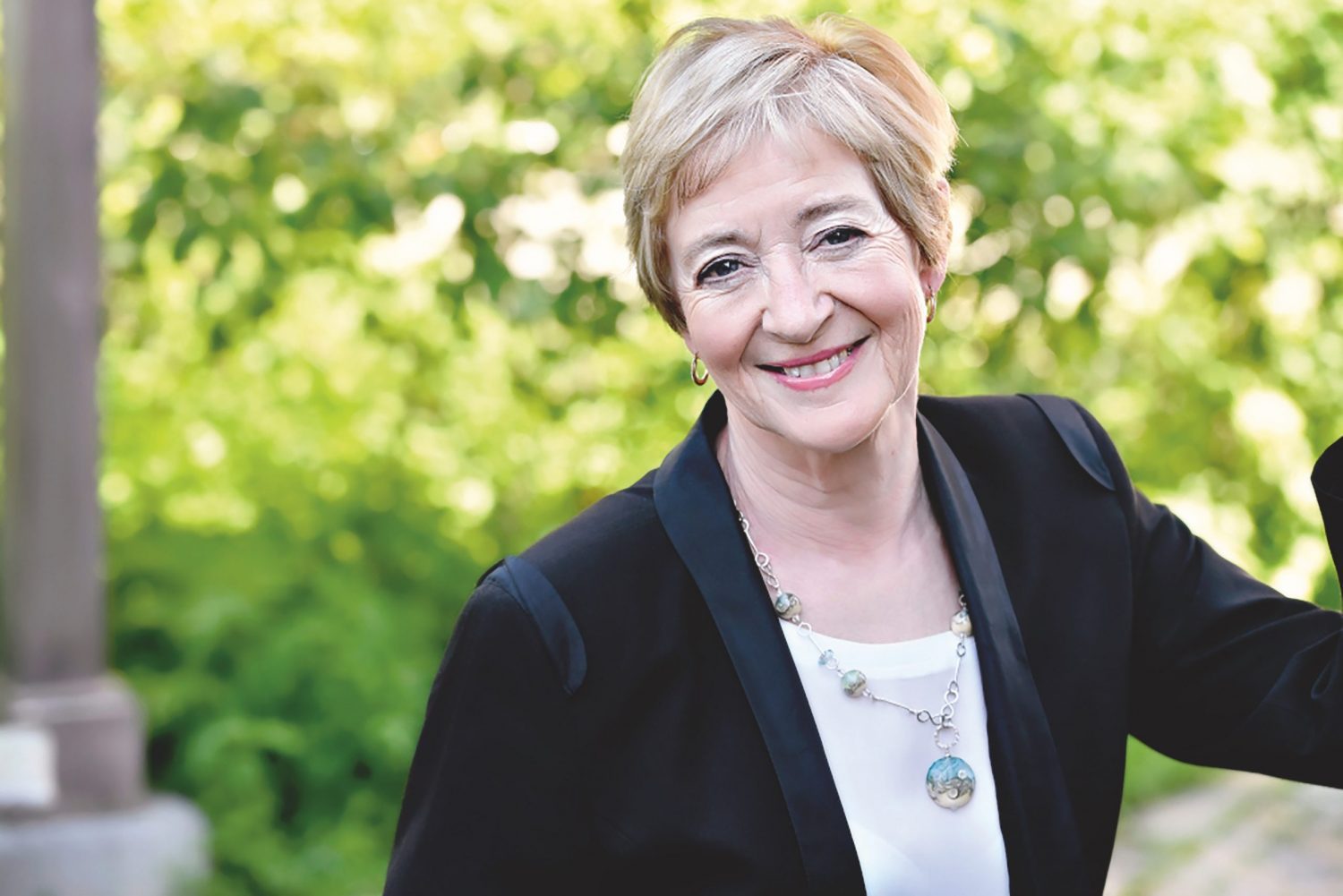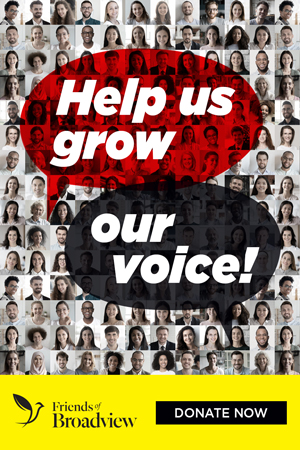For 40 years, social justice activist Maude Barlow has worked to expand women’s rights, fought for water justice and protested against free-trade exploitation. In her latest book, Still Hopeful: Lessons from a Lifetime of Activism, she shares how she maintains a positive spirit amid global trauma. Barlow spoke to Sherlyn Assam by phone from her home in Ottawa.
Sherlyn Assam: In your early work as an activist, how did you know you were making the right choices if the change you were fighting for wasn’t immediate?
Maude Barlow: You just have to go on gut instinct and your best guess because the road isn’t there. It’s quite a responsibility because you’re creating the path that others hopefully are going to follow. You have to be careful, you have to listen to others, you have to be open to criticism — fair criticism, not the stuff that’s just set up to derail you. You need to have faith that the reason you feel so passionately about something is real, and you need to act on it.
Young people are going to have to find their own ways of showing leadership, and they may not always have a blueprint. We have to find new ways of doing things, because the familiar ways aren’t working.
Interested in more stories like this? Subscribe to Broadview’s weekly newsletter.
SA: How should activists navigate criticism?
MB: If it’s from organizations or individuals that you respect, you need to stop and listen because they might have an angle you haven’t thought about. But you must not respond to all the people who are just throwing stuff at you. My mother used to say, “Arguing with people whose ears are closed is disrespectful to yourself.” Are they really trying to understand, or are they just doing this to provoke? For your own sanity, you have to know the difference.

SA: Some victories in activism come slowly, and other times, campaigns fail. How do you keep losses from halting your work?
MB: If you allow yourself to be sidelined by a loss, then you’re gone from the movement. You’re judging whether it was worth doing by whether you won or not, and that can’t be the reason you’ve taken this position in the first place. If you’re right, time will tell. You may not win each particular fight, but you’re building a movement. It’s this understanding that you’re building something beyond yourself, beyond this particular issue or campaign, that makes you persevere.
SA: How can we teach people in positions of power within activist spaces about their blind spots to encourage diverse, marginalized perspectives?
MB: I feel a great sense of goodwill toward this. We’re seeing a lot of BIPOC people, women particularly, taking over the heads of some major organizations and environmental groups in Canada. I believe the desire for reconciliation with First Nations is deep and true. I can tell you from up close, there is change in the air. Is it always done well? No. Does it always work out? No. But is it there? Yes. I truly believe there is a deep intention in our movement.
More on Broadview:
- Indigenous United Church leaders on Pope Francis’ apology
- This environmental advocate leads youth through small actions and big ideas
- Wetlands vs. developers: A small-town battle with national ramifications
We have to take the time to deal with the reality of racism and intolerance built into our society and into our movements, while not losing sight of the things we can do together.
SA: You have confidence in civil society to reverse climate change, but others feel overwhelmed. What will it take for civil society to have confidence in itself too?
MB: The planet can heal. Our water systems can heal. Soil can heal. Air can heal, we can heal, oceans can heal.
We have to introduce new and sometimes old, ancient ways of producing food and travelling. There are many wonderful examples of communities that have done the right thing. That gives me tremendous hope. I think the big challenge for us now is that we need to stop seeing ourselves as above nature, standing on top of the mountain — dominion over all. We’ve got to stop seeing resources as being for us. The reverence that Indigenous peoples have for nature and water has to become part of our daily lives.
We have the vision in front of us, and we know it’s not going to be easy. It’s hard to build a community, social programs and this notion of a just society. This is hard work that people have done before us. It turns out, it’s not over. We have to do this hard work again and again and again.
***
This interview has been edited for length and clarity.
Sherlyn Assam is a writer in Brampton, Ont.
We hope you found this Broadview article engaging.
Our team is working hard to bring you more independent, award-winning journalism. But Broadview is a nonprofit and these are tough times for magazines. Please consider supporting our work. There are a number of ways to do so:
- Subscribe to our magazine and you’ll receive intelligent, timely stories and perspectives delivered to your home 8 times a year.
- Donate to our Friends Fund.
- Give the gift of Broadview to someone special in your life and make a difference!
Thank you for being such wonderful readers.
Jocelyn Bell
Editor/Publisher


Comments